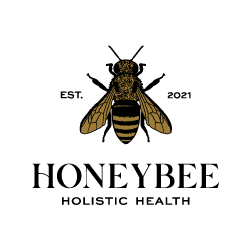 Vitamin C, also known as ascorbic acid, is an essential nutrient that plays a crucial role in various bodily functions. From forming blood vessels and collagen to boosting the immune system and acting as a powerful antioxidant, vitamin C is an integral part of maintaining overall health and well-being. While vitamin C can be obtained through dietary sources and oral supplementation, there is growing evidence that high-dose vitamin C therapy, particularly through intravenous (IV) administration, offers unique benefits and therapeutic potential. In this article, we will explore the benefits of high-dose vitamin C therapy, its role in treating various conditions, and the scientific evidence behind its efficacy.
Vitamin C, also known as ascorbic acid, is an essential nutrient that plays a crucial role in various bodily functions. From forming blood vessels and collagen to boosting the immune system and acting as a powerful antioxidant, vitamin C is an integral part of maintaining overall health and well-being. While vitamin C can be obtained through dietary sources and oral supplementation, there is growing evidence that high-dose vitamin C therapy, particularly through intravenous (IV) administration, offers unique benefits and therapeutic potential. In this article, we will explore the benefits of high-dose vitamin C therapy, its role in treating various conditions, and the scientific evidence behind its efficacy.
The Difference Between Oral and IV Vitamin C
When it comes to vitamin C supplementation, there is a significant difference between taking it orally and receiving it intravenously. Oral supplementation involves consuming vitamin C in the form of capsules or tablets, which then passes through the digestive tract and is partially absorbed. However, factors such as stress, smoking, alcohol, medications, and inflammation can hinder the absorption of vitamins in the gut, limiting their effectiveness. Additionally, oral dosing can sometimes lead to gastrointestinal side effects like abdominal cramping and diarrhea.
On the other hand, IV vitamin C therapy allows for 100 percent absorption of vitamin C directly into the bloodstream. By bypassing the digestive tract, IV administration provides immediate availability of vitamin C to the body and allows for higher doses to be delivered, ranging from 30 to 70 times that of oral dosing. This higher concentration and rapid delivery of vitamin C can result in a more therapeutic response, making IV administration an effective approach for disease prevention and treatment.
The Immune-Boosting Effects of IV Vitamin C
One of the primary benefits of IV vitamin C therapy is its ability to enhance the immune system. Vitamin C acts as a potent antioxidant, protecting the body’s cells against the damaging effects of free radicals. Free radicals are unstable molecules that can cause illness and accelerate the aging process. By neutralizing these harmful compounds, vitamin C helps reduce oxidative stress, which is associated with various diseases such as dementia, heart disease, autoimmune conditions, and cancer.
While oral vitamin C can provide some antioxidant protection, IV administration offers a much higher level of antioxidant function. IV vitamin C can also produce hydrogen peroxide at higher doses, which has been shown to help combat infections and inhibit the growth of cancer cells. This unique application of IV vitamin C has sparked interest in its potential as a treatment for viral infections, including COVID-19. By maintaining consistently higher levels of vitamin C in the body, IV therapy may help balance the immune response, preventing harmful systemic inflammation associated with severe infections.
High-Dose Vitamin C and Cancer Treatment
High-dose vitamin C has long been used as an adjunctive treatment in cancer therapy. Its role is to inhibit the replication of cancer cells without causing harm to normal cells. Vitamin C has been found to inhibit hyaluronidase, an enzyme that plays a crucial role in the ability of cancer cells to replicate and metastasize. In some cases, high-dose vitamin C is used as a monotherapy, while in others, it is combined with chemotherapy or radiation. This approach not only helps improve the quality of life for cancer patients but also protects healthy cells from the damaging effects of cancer and its treatments.
Studies have shown that vitamin C therapy can be particularly effective in treating cancers with specific mutations, such as KRAS or BRAF mutations. These mutations contribute to the Warburg effect, a metabolic phenomenon observed in many cancer cells that relies heavily on glucose metabolism for energy. By targeting the unique features of these cancer cells, high-dose vitamin C has been shown to selectively kill KRAS or BRAF mutant colorectal cancer cells. This promising finding opens up new possibilities for personalized cancer treatment using IV vitamin C therapy.
IV Vitamin C for Lyme Disease and Inflammatory Arthritis
In addition to its role in cancer treatment, high-dose vitamin C therapy has shown promise in the treatment of other conditions, such as Lyme disease and inflammatory arthritis. By reducing inflammation and enhancing the immune response, vitamin C can provide significant relief for patients with these difficult-to-treat conditions. Traditional treatment approaches may not always yield satisfactory results, making IV vitamin C therapy a valuable alternative or complementary option.
Combining IV Vitamin C with Other Nutrients
IV vitamin C therapy can also be combined with other vitamins and minerals to maximize its health benefits. Common combinations include magnesium, B12, B complex vitamins, essential minerals, and calcium. By customizing IV drips to include these additional nutrients, patients can experience a broader range of health benefits and support overall well-being.
IV Vitamin C for Skin Health and Anti-Aging
Another area where IV vitamin C therapy has shown promise is in improving skin health and combating the signs of aging. Vitamin C has been widely recognized for its ability to lighten the skin and reduce the appearance of wrinkles. When combined with other potent antioxidants like glutathione, IV vitamin C can provide a powerful anti-aging combination. By replenishing essential nutrients and supporting collagen production, IV therapy can help achieve a more youthful and vibrant complexion.
Frequency and Dosage of IV Vitamin C Therapy
The frequency and dosage of IV vitamin C therapy depend on the individual’s specific needs and the condition being treated. For general wellness, one to two sessions per month are often sufficient. In cases of mild viral infections, one or two sessions may be administered as needed. For more severe infections like COVID-19, ongoing clinical trials are investigating the potential benefits of daily infusions for up to one week. In cancer therapy, one to three sessions per week with higher doses of vitamin C are typically recommended.
The dosage of IV vitamin C can vary depending on the desired therapeutic effect. Lower doses of 1-2 grams can be administered through a slow IV push, taking approximately 5-15 minutes. Common doses of 10-25 grams are used for various medical conditions, anti-aging purposes, and disease prevention. These doses are typically mixed in sterile water, often with other vitamins and nutrients, and infused over a period of 30-60 minutes. “High-dose vitamin C” refers to doses of around 50 grams, which are primarily used in cancer treatment and more severe infections or chronic inflammatory conditions. Administration of this potent dose usually takes around 120 minutes.
Safety and Side Effects of IV Vitamin C
In general, most patients tolerate IV vitamin C infusions well. Since IV administration bypasses the digestive system, it eliminates common gastrointestinal side effects associated with oral supplementation, such as nausea, diarrhea, or abdominal cramping. However, higher doses of IV vitamin C can lower blood glucose levels, so it is recommended for patients to eat before their infusions. Pregnant individuals should exercise caution, as there is limited safety data available regarding the use of IV vitamin C during pregnancy.
Is IV Vitamin C Therapy Right for You?
Determining whether IV vitamin C therapy is suitable for your specific needs requires consultation with a healthcare professional. A thorough medical history and examination can help customize a treatment plan tailored to your individual requirements. IV vitamin C therapy may offer unique benefits and contribute to optimizing your overall health and well-being.
High-dose vitamin C therapy, particularly through IV administration, offers numerous potential benefits for various health conditions. From boosting the immune system and supporting cancer treatment to improving skin health and combating the signs of aging, IV vitamin C therapy has gained significant attention in recent years. While more research is needed to fully understand its mechanisms of action and determine optimal dosages, the growing body of evidence suggests that IV vitamin C therapy holds great promise. If you are considering IV vitamin C therapy, consult with a healthcare professional to determine its suitability for your specific needs and embark on a journey towards optimal health and wellness.
Contact Us (727-312-1262) To Learn More!
—
 About Honeybee Holistic Health
About Honeybee Holistic Health
Honeybee Holistic Health strongly believes in a holistic, organic, and integrative model of care where the patient is the center of all decisions. Our approach is to empower each one of our patients to heal themselves and to make informed, autonomous decisions in their plan of care. This is approached by integrating modern medicine with well-studied homeopathic treatment options when appropriate.

 About Honeybee Holistic Health
About Honeybee Holistic Health